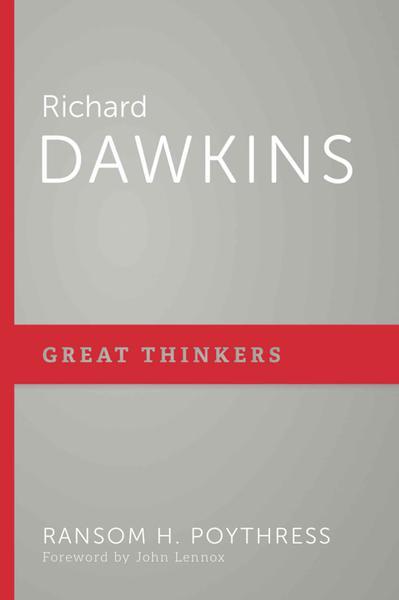
Ransom H. Poythress
Reviewed by: Robert Y. Eckardt
Richard Dawkins, by Ransom H. Poythress. P&R, 2018. Paperback, 195 pages, $11.50. Reviewed by OP pastor Robert Y. Eckardt.
As a reviewer, I decided to read this book to see if it was truly accessible through clear writing and incisive, constructive critique. The editor says this is the purpose of the entire Great Thinkers series, of which this book is a part. I have a background in chemistry, as well as theology, and bring both to my reading.
The author, Ransom Poythress, is a professor of biology at Houghton College and a graduate of Westminster Theological Seminary. Poythress uses the tools not only of presuppositional apologetics, but also of his father’s (Westminster professor Vern Poythress) emphasis on Lordship attributes.
Poythress analyzes Richard Dawkins, whose most famous work is the best-seller The God Delusion (2006). Dawkins is a prominent figure in the New Atheist movement and is noted for his incisive critique of Christianity and his debate of various Christian apologists. With his basic premise being that a human being is an animal, but also like a machine created by his own genes, Dawkins posits that a creator is not necessary for explanations of life, but that evolution provides evidence against a personal God.
According to Poythress, the New Atheist movement has three characteristics: simplicity, an evolutionary story of life, and a strident tone. In his analysis and response, Poythress is striving for an alternative: simplicity, a Biblical/logical story of life, and an irenic tone.
In his effort to keep things simple, Poythress has written a short book, with simple vocabulary, pithy definitions, memorable summary statements, helpful analogies, diagrams, and homespun illustrations.
Despite these efforts, however, some issues are difficult to simplify. As a result, later sections of the book get a little complicated and philosophical. I would prefer Poythress’s own words rather than quotes from some others who are less clear. I would hope for the audience to be the non-scientist, and even the non-theologian, but the typical Christian in the pew may have trouble following the material.
Later chapters include: Issues in Science, dealing with origins, law, the universe, and complex life; Questions about God, where the author shows the unique claims of the Bible; Miracles, answering Dawkins’s flawed definitions; Evil, where we find that not understanding sin and salvation are the key issues; and Morality, for which Dawkins seems to have no basis.
Poythress is kind and fair to his opponent throughout. He concludes with a great appendix on how to talk to atheists as people, in love, keeping emotions in check, and praying for the work of the Holy Spirit. This book is a good addition to the discussions with atheism in our day.
November 23, 2025
November 16, 2025
November 09, 2025
November 02, 2025
October 26, 2025
October 19, 2025
October 05, 2025
Raising Sexually Faithful Kids and
Parenting Boys and Girls in a Gender-Confused World
© 2025 The Orthodox Presbyterian Church